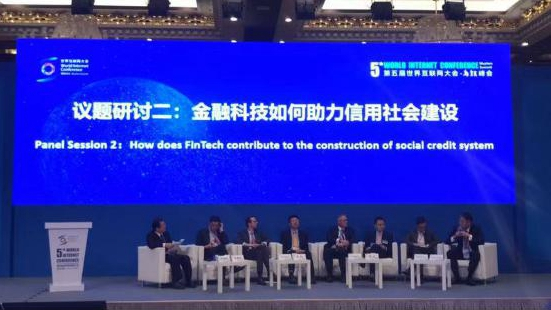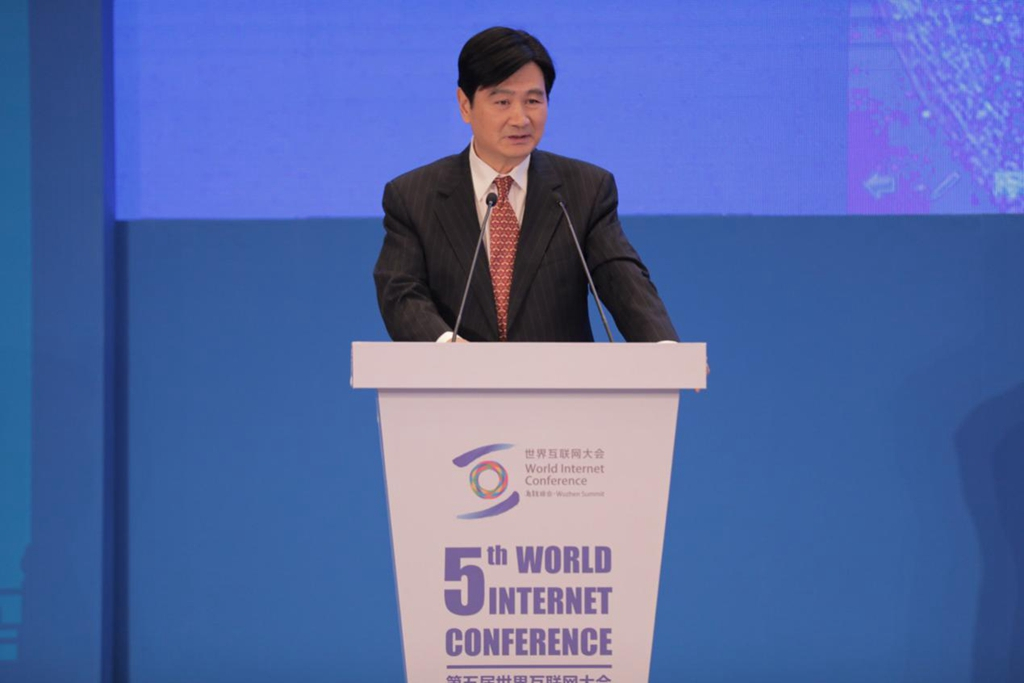
WIC2018
19:46, 08-Nov-2018
Experts hail FinTech’s contribution to social credit system
Updated
18:53, 11-Nov-2018
Closer to China

The past few years have witnessed rapid developments in the FinTech industry around the world. At the same time China is creating a social credit system. The question is how can these two things be complimentary and build on one another.
New technologies such as artificial intelligence (AI), big data and cloud computing have gradually established themselves as pivotal to the construction of a social credit system. But can FinTech better serve the construction of China's social credit system and together can they help prevent financial risks.
Today's sub-forum on FinTech and Contribution to a Social Credit System has attracted experts from all over the world.
By drawing on their skills and expertise, the forum aims to strengthen the communication and information exchange in the field of FinTech, jointly explore the fundamental and key technology developments and the innovative applications in the financial sector, and finally look at how improving FinTech development could help the construction of the social credit system in China.

Li Yang, chairman of the NIFD, one of the top national-level think tanks in China, gives a speech in the sub-forum at the 5th World Internet Conference in the water town of Wuzhen, Zhejiang Province, November 8, 2018. /VCG Photo
Li Yang, chairman of the NIFD, one of the top national-level think tanks in China, gives a speech in the sub-forum at the 5th World Internet Conference in the water town of Wuzhen, Zhejiang Province, November 8, 2018. /VCG Photo
Li Yang, chairman of the National Institution for Finance and Development (NIFD) said in his speech that a modern credit system must be built on the basis of FinTech with the help of the internet.
To this end, China must step up efforts on data collection and analysis as data serves the groundwork of establishing a credit assessment system where not only traditional data in credit assessment like financial transactions and debt records are important but also public data and specific database should be covered. China, with its large population, provides a wealth of data but it still lags behind in terms of creating effective algorithms to use that data.
He added that if China wants to develop AI, these three factors should be paid equal attention. Li also emphasized that any results from dealing with the data should not be processed by a single individual, but shared with the whole society and that needs concerted efforts.

Ge Huayong, chairman of China UnionPay, gives a speech in the sub-forum at the 5th World Internet Conference, November 8, 2018. /VCG Photo
Ge Huayong, chairman of China UnionPay, gives a speech in the sub-forum at the 5th World Internet Conference, November 8, 2018. /VCG Photo
Ge Huayong, chairman of China Unionpay, said that in recent years he has seen the Internet industry continue to evolve and become increasingly integrated with lots of traditional industries. In the financial sector, AI, big data and cloud computing and other emerging technologies are playing more important roles. FinTech has become an essential force in building a social credit system.
According to him, the value of FinTech to the construction of social credit system is mainly reflected in three aspects.
Firstly, it adds more dimensions to the current data. With FinTech, we know more about users as their behaviors on social media, location and preference are quantized.
Secondly, FinTech enables a variety of new credit services.
Thirdly, it helps to expand the credit services to lower income individuals, small and medium-sized business. And it turns out to acquire more data from those new beneficiaries and give a boost to the construction of social credit system.
Under this year's theme, the conference features 19 sub-forums with discussions on AI, 5G technology, the digital divide and other key topics that contribute to a community with a shared future in cyberspace.

SITEMAP
Copyright © 2018 CGTN. Beijing ICP prepared NO.16065310-3
Copyright © 2018 CGTN. Beijing ICP prepared NO.16065310-3